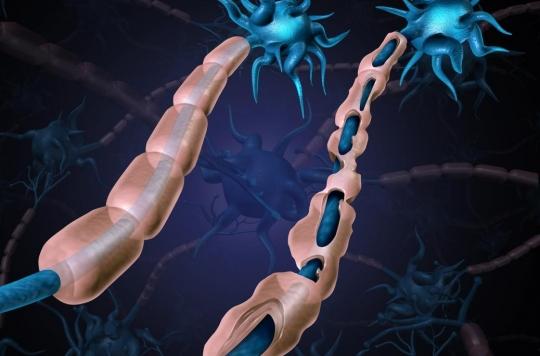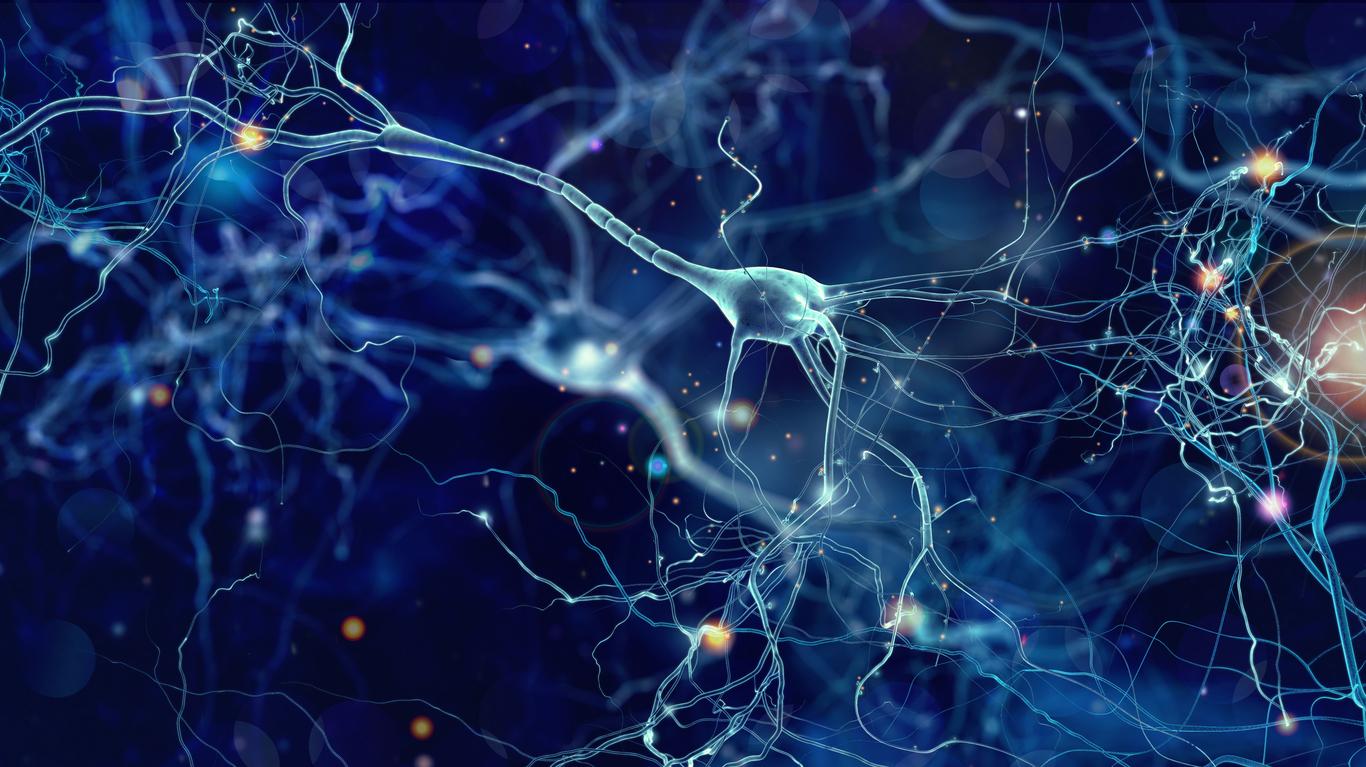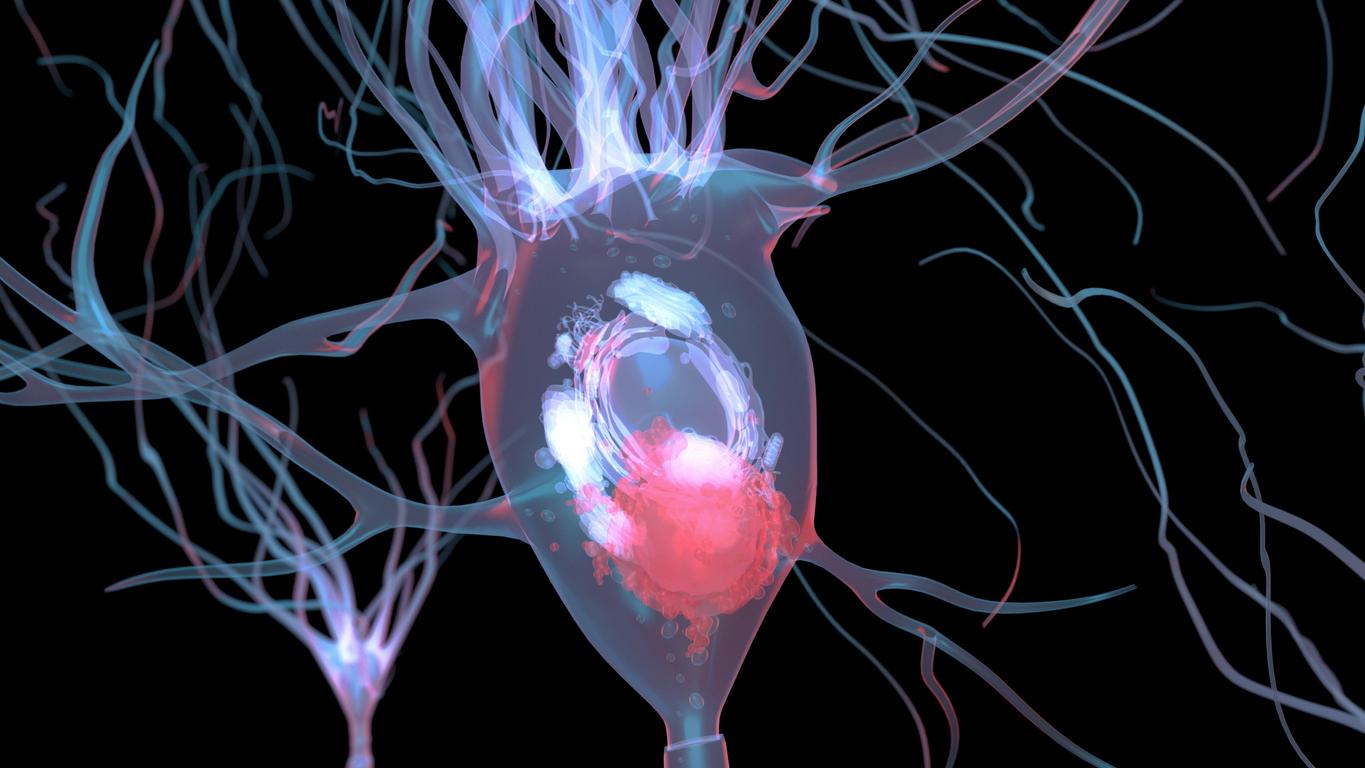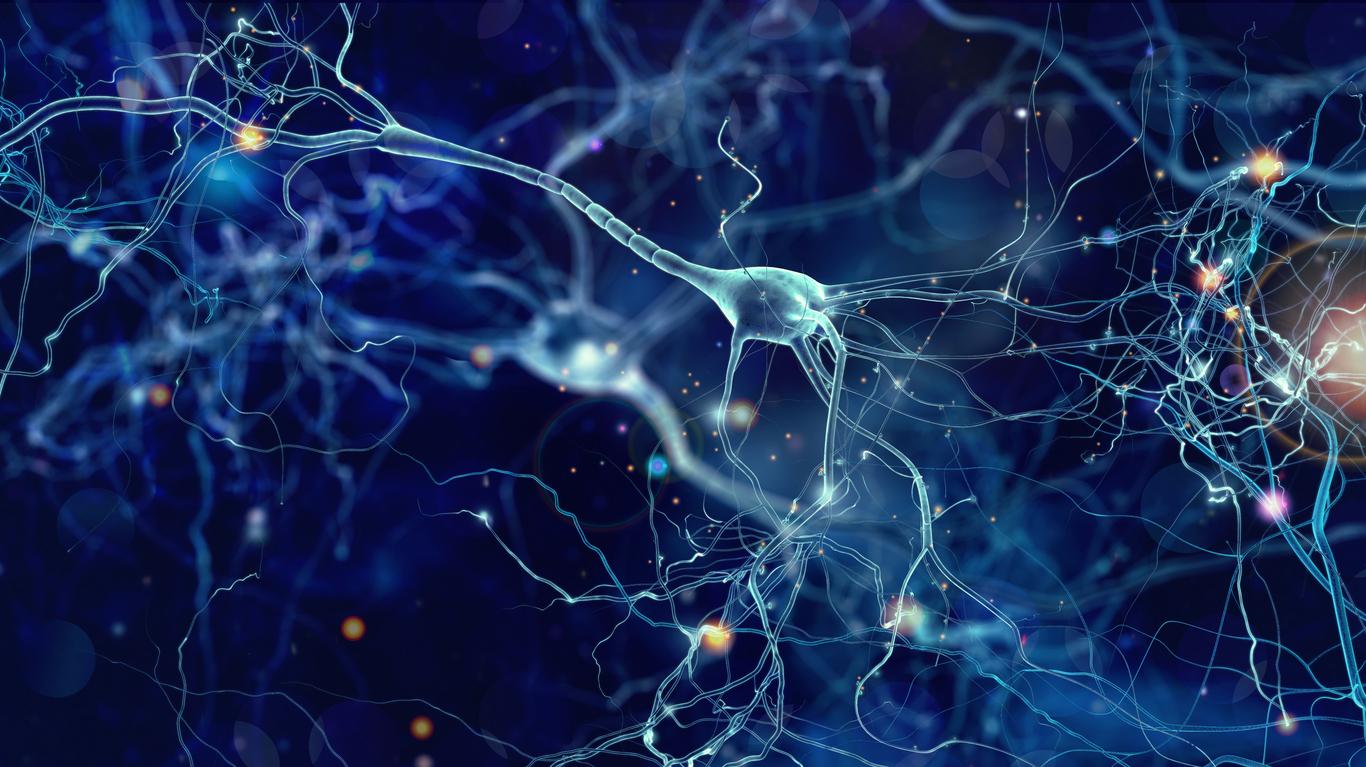A new German study sheds light on the role of the envelope protein of a retrovirus in triggering multiple sclerosis.

An autoimmune disease of the central nervous system, multiple sclerosis affects approximately 100,000 people in France and 3,000 to 5,000 new cases are diagnosed each year.
Second neurodegenerative disease after Alzheimer’s disease, it is due to a disorder of the immune system. During the early stages of multiple sclerosis, immune cells infiltrate the central nervous system located in the brain and attack the myelin sheaths responsible for protecting the axons, i.e. the nerve fibers that transmit electrical signals between neurons.
Today, there are many immunomodulatory drugs on the market that target the different inflammatory aspects of multiple sclerosis. But, as multiple sclerosis progresses, this damage accumulates, leading to irreversible deficits. Gradually, patients affected by the disease therefore lose the use of their limbs, have vision, motor and sensitivity disorders. And despite decades of research, scientists remain unable to stop the progression of multiple sclerosis because there is still no treatment to prevent damage or repair damaged axons.
The role of a retrovirus highlighted
New work, however, could reinvigorate research around neuron axon repair. Published in the journal Proceedings of the National Academy of Sciences (PNAS), they highlight a new mechanism of axon damage that could ultimately prevent disease progression in patients with progressive multiple sclerosis, a disabling form of the disease marked by a steady worsening of symptoms, usually without distinct flare-ups or periods of remission.
Previous research had already shown that the envelope protein (ENV) of a retrovirus called pathogenic human endogenous retrovirus type W (pHERV-W) could play an important role in the deterioration of myelin sheaths. This new work, carried out by the University of Düsseldorf in Germany and in collaboration with researchers from Cleveland (United States) and Montreal (Canada) goes further by demonstrating that this ENV protein pushes the cells of the central nervous system (called microglial cells) to contact and damage myelinated axons.
Two very promising clinical studies
In addition to this work, the researchers supervised two clinical studies aimed at neutralizing this harmful ENV envelope in patients with progressive multiple sclerosis. Participants were administered a monoclonal antibody responsible for neutralizing the ENV envelope. Called Temelimab, it specifically binds to the retrovirus’ ENV protein and blocks its activity in the central nervous system. Both trials were successful as participants’ MRIs revealed a reduction in nerve tissue damage.
These results are very encouraging even if the researchers must now demonstrate whether treatment with Temelimab can also improve the clinical symptoms resulting from this neurodegeneration.

.

















